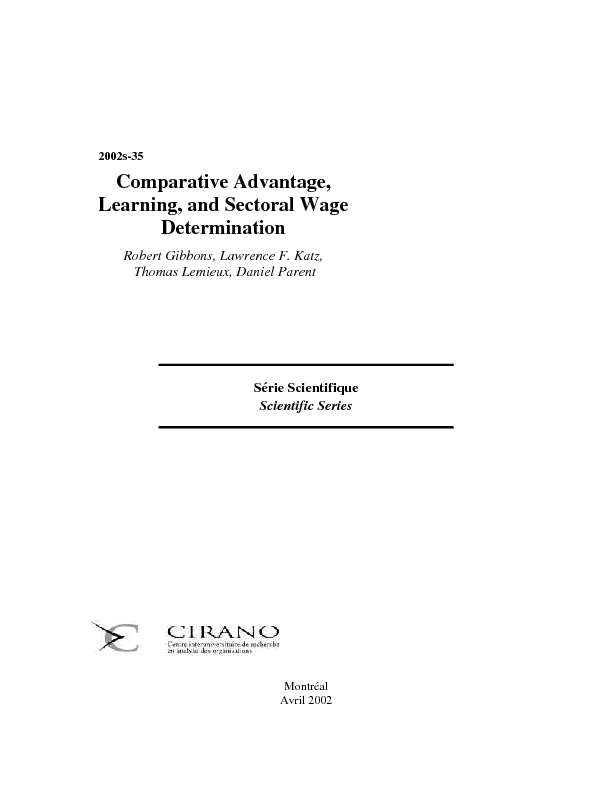Comparative Advantage, Learning, and Sectoral Wage Determination
We develop a model in which a worker's skills determine the worker's current wage and sector. Both the market and the worker are initially uncertain about some of the worker's skills. Endogenous wage changes and sector mobility occur as labor-market participants learn about these unobserved skills. We show how the model can be estimated using non-linear instrumental-variables techniques. We then apply our methodology to study the wages and allocation of workers across occupations and across industries. For both occupations and industries, we find that high-wage sectors employ high-skill workers and offer high returns to workers' skills. Estimates of these sectoral wage differences that do not account for sector-specific returns are therefore misleading. We also suggest further applications of our theory and methodology.
[ - ]




